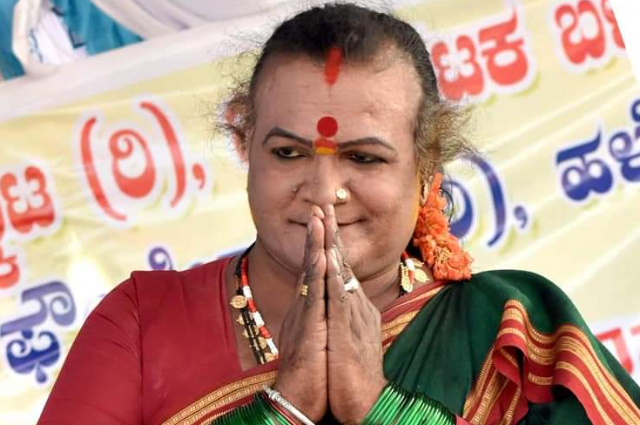
In 1957, in the district of Ballari of Karnataka, a boy was born to a middle-class couple Hanumantaiah and Jayalakshmi who was one of the 21 children in the family. He was named Manjunatha Shetty by his parents. Like any other ordinary boy, he received his education from the local school and had a pretty normal life. But soon after, in the year 1972, at the mere age of fifteen, things were getting not so normal for him as he experienced unfathomable changes which scared him, yet made him identify himself in a new light.
It felt as if the body he has been living in for the past fifteen years, was not for him. He felt awkward when he saw himself in the mirror. His interests and hobbies were not similar to those of the boys his age should have; when the boys played cricket, Manjunatha liked dressing up, when his friends went for a swim, he would like to stay back, he just didn't fit into them. It was as if his own body was betraying him and challenging him. And then he realized that he is not a boy, he is not what he was assigned during his birth, he is not what the society expects from him, as he was distinct from the rest. Manjunatha recognized himself as a woman at the age of fifteen.
Now a transgender girl, she had her apprehensions, nevertheless, she told her parents. Her parents, when they got to know about her truth, were beyond shocked. They refused to support her.
They told her,
“If you would be a man, you could help us, get married and start your own family. Even if you were a woman, we could marry you in a decent family, and then you would start your own family but what are you now? What will you do now? You are no one. People will not accept you, they will shun you and the folks you are associated with and thus you can't longer live with us. We do not wish to be connected with you.”Her parents considered her a curse on their family. She was not able to bear this harsh abandonment.
She had no one who would embrace her the way she was. She thought this was the end for her as if her own family wasn't there to help her, how could she believe that people outside would let her live? Tired and powerless, she drank poison and committed suicide. However, due to God's grace, she did not die. Her parents said that she will have to live with 'her kind of people.' Thereon a ritual wherein she was given Jogathi Deeksha at Huligemma’s temple near Hospet, she was married to the goddess Renuka Yellama and renamed herself Manjamma Jogathi. As a Jogathi, she was supposed to follow and worship the goddess and spread the word about this female deity amongst the people through music and dance.
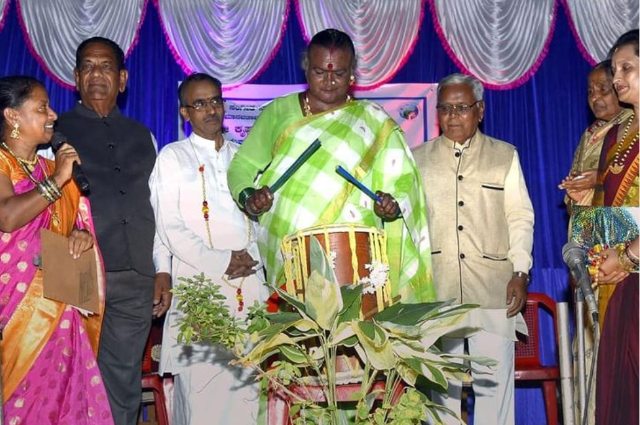
What lay ahead of her wasn't something Manjamma had anticipated. She had to leave her house and fend for herself on the roads. Life took an ugly turn for her. Like every other transgender, Manjamma moved from one city to another doing menial jobs for her living. She taught students, sold idlis but nothing seemed promising.
She had to face a myriad of questions about her existence as a transgender woman. Her jobs were not enough so she even resorted to begging but what would a few alms do to her?
How long will she be able to survive like this, all alone and without any aid from this society because as much as we hate to admit it, this society is what makes us what we are, these people are the ones who decide our fates and eventually it's them we are convincing whenever we want to bring in a revolution. However, one such day, when Manjamma was dreading whether this is her last day, she finally got her silver lining in the form of a duo of folk artists, Mattikal Basappa and Kalaava Jogathi, who had also received the Jogathi Deeksha and were adept in the Jogathi folk art. They had partaken themselves by performing the Jogathi Nritya and songs. And when the duo got to know about Manjamma, despite her sexual orientation, they decided to teach her the art intensively.
Call it a miracle or Manjamma's intense spirit of not failing in her life, she was pulled back from the vicious hole of her hardship. And since then Jogathi Nritya became her religion, her practice, her pursuit, her everything. Under the guidance of her gurus, she mastered the dance forms and the Janapadas songs. She has performed these songs over a thousand times. And every time she performed on it, she mesmerised the audience with her skills, effortlessly emoting the various emotions of pain, grief, happiness, anticipation, curiosity, not only on the stage but also amongst her audience. When Manjamma performed, she brought life into those characters, she made people live those stories and personalities. Manjamma's expressions, her vivid eyes, her graceful moves made her the ideal performer of the Jogathi Nritya, folk art that told stories of people in simple Kannada.
The songs and dance forms also narrated the stories of female deities making people connected to Manjamma' performances. Through her dance, she also promoted the message of women empowerment, feminism, gender roles, and patriarchy, thus making this art form relevant for all and forever.
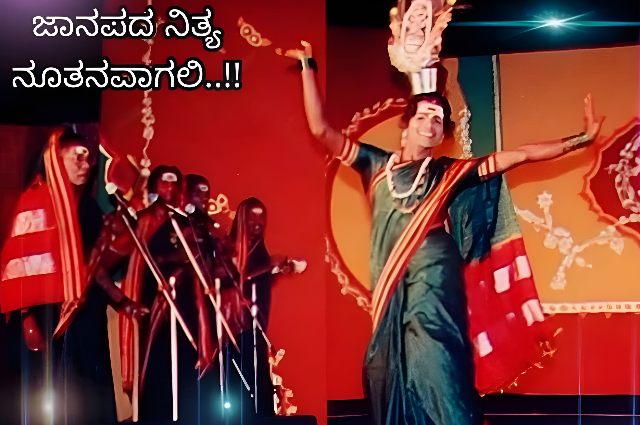
Dance came naturally to her, it made her feel empowered, made her feel as if she belonged somewhere, and as if people like her mattered. So she proceeded with performing with her group and her gurus. Things were finally beginning to make sense for her. But after the demise of her guru, Kallava, she did receive a setback. He was the one who gave her new life, her new individuality amidst the crowd of thousands. She was shattered, to say the least, but sooner or later they had to perform so, Manjamma took the step up the plate and with her coup, started performing across the state of Karnataka to make people familiar with this folk art. Years passed and her coup conducted several acts and shows in the state with people acknowledging the dance forms and even exhibiting a willingness to know more about them.
India is known for its assorted culture and vibrant traditions and Manjamma fervidly added to this endowment. Recognizing her wholehearted efforts towards the promotion of the state culture, The Karnataka Government felicitated her with the Karnataka Janapada Academy Award in 2006, followed by the Rajyotsava Award in 2010 which is the state's second-highest civilian award, conferred by the Karnataka Government to those citizens who had distinguished contribution in the various spheres like art, education, literature etc.
These are just a few of the revere accomplishments she has had as in 2019, she became the first transgender woman to be appointed as the chairperson of the Karnataka Janapada Academy. The Karnataka Janapada Academy is a public university and cultural academy exclusively dedicated to the study of research and folklore. Apart from these awards and designations, she is so celebrated in Kannada literature that she has a book written on her named The Naduve Suliva Hennu by Arun Jolada Kudligi and her mention is even there in the school textbooks of Kannada language. All this motivated her to do more and more for her community and folk art. She is making a shelter home for her community which will provide basic amenities to them so that they don't have to face what Manjamma had faced in her initial years. However, her fate had different plans for her. In 2021, when she was in the academy teaching her students, she received a phone call stating 'Manjamma Congratulations! Aapko Padma Shri mil gaya hai.'
Well just like any other person, she thought that someone was fooling with her and she simply ended the call. But then another person called in the evening who then asked for her biodata and told her that she has, in fact, received the Padma Shri. She felt surreal as she was still in shock. What did she do to receive this award was the only question going over in her mind. But it was all God's wish, as she has said. Her name flashed on television and everyone was happy for her. And thus, on November 9, 2021, Manjamma Jogathi was the only transgender person to receive the Padma Shri by President Ram Nath Kovind during the felicitation ceremony at the Rashtrapati Bhavan.
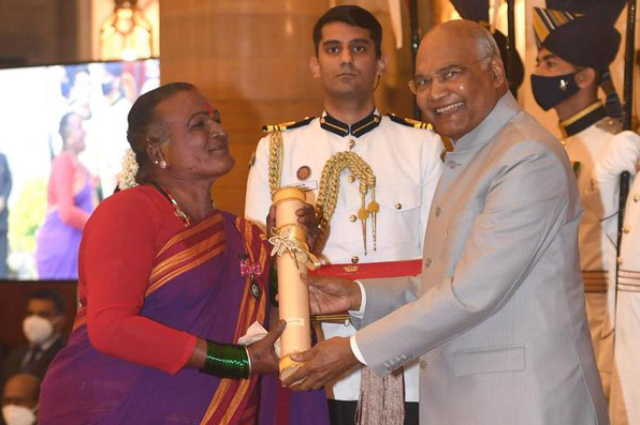
While I watched the interviews of Manjamma Jogathi on social media and when I read several articles about her, there was a surfeit of emotions in my heart; reverence, frustration, resentment, happiness, motivation, all of these feelings flushed inside me. A child who was thrown out of her house, who faced a gender identity crisis, who did not have a childhood unlike most of us and it was a sheer struggle since the start made it through all this just by being true to herself and her art. Just imagine how it would feel if your parents threw you out of your house, didn't support you in the initial years of your upbringing which I must say paves the path of your future, and held you responsible for something which you don't have any control of. Yet she faced all of it.
What will she do? How will she earn? Is this what she has to do for the rest of her life? Will she ever be happy? Will the people of her community let her be with them? Regardless of these unsettling questions, she wasn't someone who would give up so easily, why? Because she knew that every person in this world is fighting for themselves, against the system, against their family, or from themselves. Even though she was on her own, she never gave up. Questions were raised about her character, her dignity was at stake, she would be looked down on, unscrupulous men would sexually assault her, in face of all this, she knew how to hold her head high in this world where every day, lakhs of people give up on themselves and die, only because they weren't able to overcome the monstrosity of their oppressors. Dance and singing became her solace.
People say that there are several reasons to die but you need only one to live, and Manjamma found that one reason to let her survive through all this.
Every time I read about her, I become in awe of the strength of her character and her love for her profession. Even today when she is recognised and has a decent lifestyle where she can do anything, she still chose to teach the youth of the state to encourage folk art which has given her identity, name and fame and has no bit of arrogance.
As a person, she has a lot to take from. When taunts and insults were her constant companion and nobody had seen dance being performed by a third gender, she strived harder than others and turned the abuses into applause, carving her place in this society. She proved that doing anything is beyond gender; whether it's art or leading any big organization.
What makes this world beautiful to live in is its diversity in every form whether it is culture, language, people, beliefs, religion and much more. However, not embracing these diversities and being insolent towards them are the issues that we are facing in the present era. The Constitution of our country clearly states that it provides equality to one and all citizens of the nation, then who we are to discriminate against the transgender community? Albeit the role of the government is crucial in the advancement of this group, the real reception starts from our homes. A journey of a transgender person starts from his or her home itself, if such hostile treatment is given to them in their own space, what else could they except the world outside? These people run out of their homes, courtesy to the persistent social stigmatization, are pushed into destitution, slavery and sex work, all this so that they can wear a saree and be what they have always wanted to be.
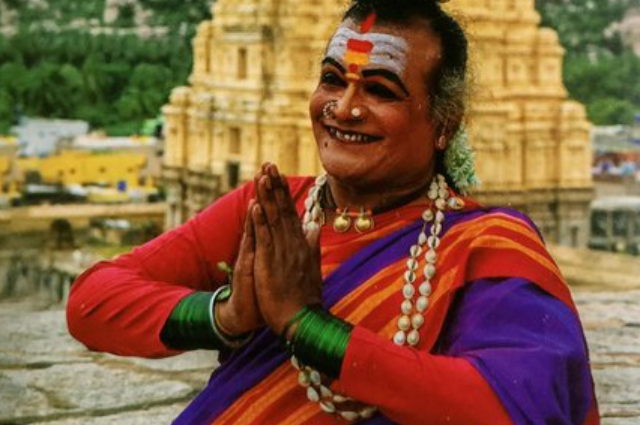
If a child is born, then don't treat him or her differently, don't abandon them, respect them as who they are and give them the same rights and privileges you have. I mean just think about it, if we all were perceptive enough to this situation, we wouldn't have needed laws, opportunities, protests, and reservations for trans people. If we would know that it's simply natural and biological, such a problem wouldn't have arisen in the first place. It's all in our heads. You ask any of the trans people what they want and all they want is for people to welcome them.
Even Manjamma Jogathi in her interview has said that receiving Padma Shri is not something for herself, but it's a token of acceptance for her entire community. She is happy that the government is recognizing people from her community and regarding them and she is so proud of it. What they need from us is to not alienate them; they are normal just like the rest of us, they have the same potential as us or rather more than us. All they yearn for is some love and respect from the people which they rightfully deserve.
